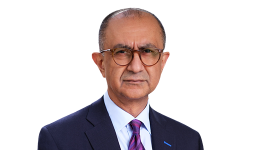
In two comprehensive judgments handed down in March and June this year, the Commercial Court (Henshaw J) has determined a series of jurisdiction challenges made in the context of the market-wide insurance litigation concerning the non-return of Western-owned aircraft by Russian and Ukrainian airlines in the aftermath of Russia’s invasion of Ukraine in February 2022.
The aircraft were insured by the airlines with local (i.e. Russian or Ukrainian) insurers and reinsured in the London and international market. The insurance and reinsurance policies were governed by local law and contained exclusive jurisdiction clauses (“EJCs”) in favour of the local courts.
Claims were brought in the Commercial Court by the owners and lessors (and, in some cases, operators) of the aircraft against the reinsurers (and, in some cases, the local insurers). The claims are brought on the (disputed) basis that the owners and lessors are entitled to claim as additional insureds and/or beneficiaries under the airlines’ insurance policies, and that they are entitled to claim directly against the reinsurers pursuant to “cut through clauses” contained in the reinsurance policies. The claims relate to more than 200 aircraft and 30 engines, and are worth in excess of US$10 billion.
In each case, the reinsurers challenged the jurisdiction of the English court on the basis of the EJCs in favour of the Russian and Ukrainian courts.
The Russian jurisdiction challenges
The Russian jurisdiction challenges were heard over four days in February 2024. In a 261-page judgment, which includes a thorough analysis of the applicable legal principles on an application to stay a claim brought in breach of an EJC, Henshaw J dismissed those challenges, concluding that there were “strong reasons” not to enforce the Russian EJCs. The main reason for this conclusion was the Court’s finding that the Claimants were “very unlikely to obtain a fair trial in Russia, which in itself is a strong reason to decline a stay”.
In addition, the Court held that “the prospect of multiplicity of proceedings, and the resulting risks of inconsistent findings on key issues, though not decisive, are factors that can properly be taken into account”, and that this prospect, “as well as an element of risk of personal attacks on individuals who in the ordinary course would attend trial, add further support to the view that strong reasons exist to refuse a stay.”
The Court held that it would have been hesitant about refusing the Defendants’ stay applications on public policy grounds, declined to conclude that the Defendants had no genuine wish for trial in Russia, and (although it was not necessary to resolve the issue) indicated that it would have been inclined to conclude that the Defendants had a good arguable case that certain of the Claimants were prima facie subject to the Russian EJCs even as regards their collateral contract claims.
The claims in relation to the Russian aircraft will therefore continue in the Commercial Court.
The judgment is available here.
Alexander Milner KC acted for the Voyager MLB Claimants (instructed by Morgan Lewis & Bockius), with Christopher Langley involved at other stages of the case.
Bankim Thanki KC (with Andrew Neish KC, Kate Livesey and Ron Chatterjee, instructed by Holman Fenwick Willan) and Akhil Shah KC, Nick Daly and Max Kasriel (instructed by CMS) acted for the Hull War Risks Defendants (along with Susannah Jones), with James Duffy KC involved at other stages of the case.
The Ukrainian jurisdiction challenges
The Ukrainian jurisdiction challenges were heard over three days in March 2024. In contrast with the Russian jurisdiction challenges, the Claimants did not contend that they could not obtain a fair trial in Ukraine. Rather, they resisted the Ukrainian jurisdiction challenges on two bases: first, that the Ukrainian EJCs were not (as a matter of Ukrainian law) binding and enforceable on the Claimants and applicable to the claims; and second, that there were strong reasons not to enforce the Ukrainian EJCs (principally arising from the effect of the ongoing conflict in Ukraine).
In a 125-page judgment, Henshaw J dismissed both arguments, holding that: (a) the Defendants had the better of the argument that the Ukrainian EJCs are binding and enforceable, and applied to the claims which the Claimants wish to advance; and (b) there were not strong reasons to decline to give effect to the Ukrainian EJCs by staying the claims in favour of proceedings in the courts of Ukraine.
The claims in relation to the Ukrainian aircraft will therefore be stayed and must proceed (if so advised) before the Ukrainian courts.
The judgment is available here.
Derrick Dale KC, Christopher Langley and Tiffany Tang (instructed by Hausfeld & Co) acted for the Hausfeld Claimants.
Akhil Shah KC, Nick Daly and Max Kasriel (instructed by CMS) and Niamh Cleary (with James Brocklebank KC, instructed by DLA) acted for the Hull War Risks Defendants, with James Duffy KC involved at other stages of the case.
Daniel Schwennicke (instructed by Dechert) acted for Chubb European Group SE, with Ben Lynch KC involved at other stages of the case.














